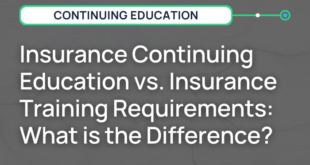Insurable interest in a property policy must be proven. It’s not just about owning the place, it’s about showing you’ve got a stake in its safety. Think of it like this: you wouldn’t insure a property you don’t care about, right? This crucial aspect of property insurance ensures the policyholder has a real reason to want the property protected.
From residential homes to bustling businesses, understanding the nuances of insurable interest is key to avoiding claim rejections and securing your coverage.
This guide dives deep into what insurable interest is, how to prove it, and what happens when you don’t. We’ll explore different property types, various proof methods, and even international variations in the rules. Get ready to navigate the world of property insurance with confidence!
Defining Insurable Interest

Insurable interest is a crucial concept in property insurance. It’s not just about owning something; it’s about having a legitimate reason to care about its safety and value. This interest must be present when the policy is taken out and throughout its duration. Understanding this concept is vital for both policyholders and insurers to ensure fair and legitimate claims.Insurable interest, in a nutshell, means you stand to suffer a financial loss if the insured property is damaged or destroyed.
This connection between the policyholder and the property is the bedrock of a valid insurance contract. Without it, the contract lacks the necessary legal backing and the insurance company is not obligated to pay a claim.
Legal Requirements for Establishing Insurable Interest
To establish insurable interest, the policyholder must demonstrate a financial stake in the property. This often involves a legal or economic relationship, such as ownership, a mortgage, or a lease. The connection must be demonstrably real and quantifiable. A mere sentimental attachment isn’t enough to satisfy the legal requirement. For example, a friend who’s storing valuable belongings in your home might have insurable interest in those items, but not in your home itself.
Insurable Interest vs. Ownership
Insurable interest isn’t always synonymous with ownership. A lender holding a mortgage on a property has insurable interest, even though they don’t own it outright. Similarly, a tenant renting a property can have insurable interest in the property’s contents, even if the landlord owns the building. The key is the potential for financial loss if the property is damaged or destroyed.
Comparing Insurable Interest Across Property Types
The requirements for proving insurable interest can vary slightly depending on the type of property. Different interests and relationships exist between parties depending on whether the property is residential, commercial, or vacant land.
Table Comparing Insurable Interest Requirements
| Property Type | Required Elements |
|---|---|
| Residential | Proof of ownership (deed, title), mortgage, lease agreement, or other financial interest. For example, a homeowner, a renter with valuable contents, or a co-op board member, might have insurable interest. |
| Commercial | Proof of ownership (deed, title), mortgage, lease agreement, or other financial interest in the business operation or equipment. Examples include business owners, landlords, or secured creditors. This often involves specific details related to the business’s operations and the property’s use in the business. |
| Vacant Land | Proof of ownership (deed, title), potential for development or sale that might be impacted by damage, or a contractual agreement relating to the land. For instance, a developer or someone with an option to purchase the land could have insurable interest. |
Proving Insurable Interest
Establishing insurable interest isn’t just a formality; it’s a crucial element of a valid property insurance policy. It ensures the policyholder has a legitimate reason to be insured, preventing fraud and misuse of the insurance system. Without proof of insurable interest, the insurance company may void the policy.Demonstrating insurable interest involves showing a tangible, financial stake in the property.
This means you’d need to show the policyholder would suffer a financial loss if the property was damaged or destroyed. It’s not enough to simply like the property; a genuine financial connection is essential.
Methods for Demonstrating Insurable Interest, Insurable interest in a property policy must be proven
Various methods exist for proving insurable interest. These methods often involve providing documentation that clearly establishes the policyholder’s ownership or financial stake in the property. The specifics depend on the situation, whether it’s an individual homeowner, a business owner, or a tenant.
Documentation Required
A range of documents can be used to demonstrate insurable interest. The specific documents needed will vary based on the type of policyholder and the nature of their interest in the property. These documents should clearly show the policyholder’s financial stake and the potential for financial loss in the event of damage or destruction.
Examples of Supporting Documents
To illustrate, here are some examples of supporting documents for various insurable interest scenarios:
- For an individual homeowner: A copy of the property deed, mortgage documents (if applicable), tax assessments, or home equity loan statements. These demonstrate the homeowner’s ownership and potential financial loss in case of damage. For example, if a house is worth $300,000 and the homeowner has a mortgage of $200,000, they have a clear insurable interest of $100,000.
- For a business owner: Lease agreements, business licenses, proof of ownership (if applicable), inventory records, or profit and loss statements. For example, a business that owns a building and has substantial equipment inside would have a strong insurable interest based on the building and equipment values.
- For a tenant: A copy of the lease agreement, proof of rent payments, or utility bills. This demonstrates the tenant’s interest in the property and their potential loss if it’s damaged. For example, if a tenant has valuable personal belongings, or leases a building to operate a business, they have a strong insurable interest.
Proving Insurable Interest for Individuals and Businesses
For individuals, providing copies of ownership documents and relevant financial statements often suffices. For businesses, comprehensive documentation, including ownership records, lease agreements, and financial statements, is typically required. Insurance companies may also request additional information depending on the specific circumstances.
Table Illustrating Evidence Types
This table summarizes the types of evidence used to demonstrate insurable interest for different situations:
| Situation | Evidence Types |
|---|---|
| Individual homeowner | Property deed, mortgage documents, tax assessments, home equity loan statements |
| Business owner | Lease agreements, business licenses, ownership records, inventory records, profit & loss statements |
| Tenant | Lease agreement, rent receipts, utility bills, proof of personal belongings (if applicable) |
Consequences of Lack of Insurable Interest
Failing to prove insurable interest can have serious repercussions for both the policyholder and the insurance company. This lack of interest significantly impacts the validity of the policy and can lead to a denial of claims, potentially causing financial hardship. Understanding these consequences is crucial for anyone involved in property insurance.Establishing insurable interest is a fundamental requirement for a valid insurance policy.
Without it, the contract lacks a crucial element, making the policy potentially voidable. This means the insurer might not be obligated to cover any losses, regardless of the circumstances. This section details the implications of not demonstrating insurable interest.
Policy Validity and Coverage
A missing or insufficient proof of insurable interest directly affects the policy’s validity. If the court finds a lack of insurable interest, the policy may be deemed unenforceable. Consequently, the insurer has no obligation to provide coverage for any damages or losses that occur. This is a significant concern, especially for property owners who rely on insurance to protect their assets.
The policyholder may not receive any compensation for potential losses.
Legal Ramifications
Failure to establish insurable interest can lead to legal disputes. The insurer might face a lawsuit if they attempt to deny a claim based on a lack of insurable interest. This can result in significant legal costs and potential financial penalties. Furthermore, the policyholder could face similar repercussions if they try to claim on a policy without proof of insurable interest.
Impact on Insurer’s Rights and Obligations
Without insurable interest, the insurance company is not bound by the terms of the policy. The insurer has the right to challenge the claim and refuse to pay any resulting damages. They are not obligated to provide coverage. This lack of obligation impacts the financial stability of both the insurer and the policyholder. It is important for both parties to understand their respective rights and obligations in this situation.
Potential Claims Denials Due to Absence of Insurable Interest
The absence of insurable interest is a significant factor that can lead to numerous claims denials. Here’s a list of potential scenarios:
- A tenant attempts to claim on a property insurance policy for damage to a building they do not own or have a legitimate financial interest in.
- A person claims insurance on a property they do not own or have a legitimate financial interest in. They may claim ownership without having any ownership rights.
- A family member claims insurance on a property that they have no financial interest in, like a gift from a family member that isn’t documented or recorded as a gift.
- A person purchases a property with no intention of owning it, and claims on a policy without having insurable interest. This is a clear example of a fabricated financial interest.
- A person with no ownership interest in the property tries to claim insurance for damages.
These are just a few examples. The specific circumstances and the details of the insurance policy will influence the outcome.
Special Circumstances and Exceptions

Insurable interest isn’t always a straightforward calculation. Certain situations, like leaseholds or shared ownership, require specific considerations. Exceptions also exist for certain types of property insurance, where the need for proof of insurable interest might be lessened or even waived. Understanding these nuances is crucial for both policyholders and insurers.Establishing insurable interest can sometimes be tricky in unique situations, especially when dealing with interests less direct than outright ownership.
So, like, you gotta prove you actually own the place to insure it, right? It’s all about having ‘insurable interest’. Like, if you’re trying to figure out how long the flight from Sydney to Colombo takes, you can check this out: flight time from sydney to colombo. Anyway, it’s crucial to prove that you’re financially affected if something happens to the property.
You gotta have skin in the game, basically.
The specific rules vary based on the nature of the property and the insured’s relationship to it.
Leasehold Interest
A tenant with a leasehold interest has a valid insurable interest in the property they lease. Their interest is tied to the lease agreement and the rights and obligations Artikeld within it. The extent of their insurable interest aligns with the value they stand to lose should the property be damaged or destroyed. For instance, a tenant with a long-term lease has a greater insurable interest than a tenant with a short-term lease.
Shared Ownership or Joint Ventures
When property is owned by multiple parties, like in joint ventures or partnerships, each owner has an insurable interest. The extent of their interest correlates to their proportional ownership share. If one party suffers a loss, their insurable interest is tied to the amount of their financial investment in the property. Documentation, like deeds or partnership agreements, is essential to verify the proportional ownership.
Specific Circumstances Requiring Closer Scrutiny
Certain circumstances might require insurers to scrutinize insurable interest more closely. These situations might involve:
- Property in litigation: When property ownership is in dispute, determining the rightful owner’s insurable interest is essential. This is usually resolved through legal proceedings, with court orders establishing the valid insurable interest.
- Property held in trust: The trustee of a trust holds the insurable interest on behalf of the beneficiaries. The extent of the interest depends on the terms of the trust agreement.
- Property under conditional sale agreement: Under a conditional sale agreement, the seller retains an insurable interest until the buyer fully completes the purchase. The buyer’s interest is typically limited to the portion of the property they have already paid for. The contract outlining the agreement will define the exact nature of their insurable interest.
Insurance Types with Reduced/No Insurable Interest Requirement
Certain property insurance types might not require strict proof of insurable interest. This typically involves insurance policies covering specific types of property or situations.
- Mortgage insurance: A lender holding a mortgage on a property usually has insurable interest. Mortgage insurance, in this case, covers the lender’s financial stake in the property. This insurance often doesn’t require proof of insurable interest from the property owner.
- Business interruption insurance: This policy protects businesses from lost income due to property damage. While the business may not necessarily hold insurable interest in the property, their financial loss is still protected.
- Government-backed property insurance: In some cases, government programs offer insurance for specific types of property, which may not always require traditional proof of insurable interest.
Exceptions to the General Rules
Insurable interest isn’t always a straightforward application of general rules. Exceptions exist, and insurers will need to consider the specifics of each case.
- Statutory exceptions: Some state laws might specify exceptions or unique requirements for insurable interest.
- Policy exclusions: Certain property insurance policies might have exclusions that impact insurable interest. For instance, if a policy excludes damage from a specific event, the insured may not have insurable interest for that type of loss.
- Specific contractual agreements: The specific terms of contracts, such as lease agreements or partnerships, can Artikel special insurable interest arrangements.
International Variations
Insurable interest isn’t a one-size-fits-all concept. Different countries have unique legal frameworks governing insurance policies, and this naturally extends to the rules around who can insure what. Understanding these variations is crucial for international property insurance transactions. Navigating these differences can be complex, and errors can lead to costly issues down the line.
Different Jurisdictional Approaches
Insurable interest requirements vary widely across the globe. Some jurisdictions are more stringent than others, defining the relationship between the insured and the property more explicitly. For example, in some countries, a person must have a direct financial stake in the property to hold a valid insurance policy. In other places, the concept is broadened to include individuals with a legitimate interest in the property’s well-being, even if not a direct financial owner.
This difference in interpretation impacts how people can insure property they do not own outright, like tenants or those with leasehold interests.
Impact of International Agreements
International agreements, while not always directly dictating insurable interest laws, can influence the interpretation and application of national regulations. These agreements may address broader principles of property rights or commercial transactions, creating a framework for resolving disputes arising from international insurance policies. However, these agreements don’t always fully standardize insurable interest rules, leading to inconsistencies in practice.
Complexity in International Property Insurance
International property insurance presents significant challenges due to these variations. Determining insurable interest in a cross-border transaction requires careful legal analysis. Understanding the specific requirements of each country involved is vital to ensure compliance. The complexity is amplified when considering differing legal systems and cultural norms. For instance, a business with operations in multiple countries may face challenges in demonstrating insurable interest in properties located in various jurisdictions.
So, like, you gotta prove you have a stake in the property if you want insurance, right? It’s all about showing you’re actually affected if something goes wrong. If you’re lookin’ to invest, check out these sweet apartment buildings for sale charlotte nc here. You know, a solid investment needs a solid proof of interest in the policy.
Gotta have that legit connection to the property, or else the insurance won’t cover it.
Comparative Analysis of Insurable Interest Laws
| Region | Insurable Interest Laws |
|---|---|
| North America (e.g., USA, Canada) | Generally, insurable interest must exist at the time of loss. The interest can be financial, such as ownership, or based on a legal relationship like a leasehold. Statutes and case law vary slightly by state or province. |
| Europe (e.g., UK, France, Germany) | Insurable interest typically requires a demonstrable financial stake or a legally recognized interest. The focus is often on the potential for financial loss if the property is damaged or destroyed. Regulations can vary significantly between European countries. |
| Asia (e.g., Japan, China, India) | Insurable interest requirements in Asia can be diverse, depending on local laws and cultural norms. Some countries might emphasize ownership, while others might acknowledge insurable interest for those with a legitimate business or personal interest in the property. There can be significant differences between countries in the region. |
Practical Application
Insurable interest isn’t just a theoretical concept; it’s a vital component in real-world insurance dealings. Understanding how it works in various scenarios is crucial for both policyholders and insurers. It directly affects whether a claim is valid and how it’s handled. This section will delve into real-world examples and hypothetical situations to illustrate its importance.
Real-World Insurance Scenarios
Insurable interest ensures that the policyholder has a genuine stake in the insured property. This prevents opportunistic claims from individuals who have no financial interest in the loss. A homeowner, for example, has insurable interest in their house because they own it and would suffer a financial loss from damage or destruction. Similarly, a business owner has insurable interest in their inventory or equipment as they depend on these for their income.
Crucial Situations
Insurable interest is absolutely critical in situations where a potential loss could directly impact a person’s financial well-being. For example, a lender holding a mortgage on a property has insurable interest because a loss would jeopardize their investment. Similarly, a tenant renting a property might have insurable interest in the structure itself, contingent on the terms of the lease agreement and potential financial implications of damage.
Importance for Risk Management
Understanding insurable interest is vital for effective risk management. It helps individuals and businesses identify and evaluate the risks they face and ensure appropriate coverage. By carefully assessing insurable interest, you can avoid situations where a claim might be denied due to a lack of legitimate stake in the insured asset.
Case Studies
A significant case study involves a business owner who claimed insurance for equipment damaged in a fire. However, they had recently sold the equipment and no longer had insurable interest. The claim was denied due to a lack of financial interest. Similarly, a family member claiming on a parent’s home after they passed away would need to demonstrate their financial interest to have a valid claim.
Hypothetical Scenarios
- Scenario 1: A friend loans their valuable painting to a gallery for an exhibit. The gallery insures the painting, but the friend has no insurable interest in the artwork. If the painting is damaged, the gallery would be the one with a legitimate claim, not the friend.
- Scenario 2: A business leases equipment for use. While the business benefits from the equipment’s operation, they don’t own it and may not have insurable interest. The owner of the equipment is the one who would file a claim for damage or loss.
- Scenario 3: A homeowner takes out insurance on a building they’ve agreed to buy. The purchase agreement is contingent on certain conditions. If those conditions aren’t met and the home isn’t purchased, the homeowner might not have insurable interest at the time of a loss.
- Scenario 4: A person insures a family heirloom. While they may have an emotional attachment, without a clear financial interest or legal claim, they might not have insurable interest in the heirloom.
Ending Remarks
In short, proving insurable interest is a crucial step in securing property insurance coverage. It’s not just a formality; it’s about demonstrating a genuine stake in the property’s well-being. Understanding the rules, documentation, and potential consequences is vital for both individuals and businesses. Remember, a well-founded claim hinges on proving this crucial element. This guide has hopefully clarified the intricacies and provided the tools you need to navigate this aspect of insurance confidently.
General Inquiries: Insurable Interest In A Property Policy Must Be Proven
What if I’m renting the property?
You might still have insurable interest, depending on the lease agreement and your rights under it. Check with your landlord and insurance provider for clarification on how your rental status affects your insurable interest.
What documents are needed to prove insurable interest?
The required documents vary based on the type of property and your relationship to it. Examples include deeds, leases, loan documents, or even proof of business ownership. Your insurance provider will specify the necessary documents.
What happens if I don’t prove insurable interest?
Your claim could be denied. It’s essential to understand the specific rules in your area and the documents your insurance provider requires.
Does insurable interest differ for different countries?
Yes, laws and requirements for insurable interest vary across different jurisdictions. It’s important to consult local legal resources and insurance providers to understand the specific rules in your area.
 Nimila
Nimila




